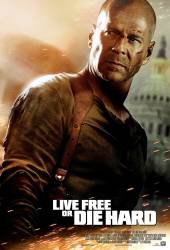
Question: You'll have to forgive my ignorance regarding a comment made by Matt Farrell. He said that it took FEMA five days to get water to the Superdome. What exactly was he talking about?
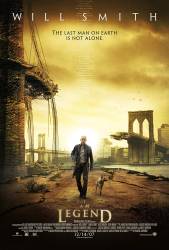
Question: Did just New York get contaminated or did the rest of the world get infected?
Answer: The whole world is infected.
Answer: During the evacuation, it seems that only Manhattan is infected, or if there are infections elsewhere, it is not known by the government yet. Sometime in January 2010, things get worse if you follow the posters in the movie.
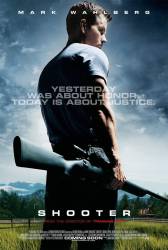
Question: In the movie they state the colonel cannot be charged because the crime was committed outside of the United States. All active members of the US military like the colonel are subject to the uniformed military code of justice no matter where the crime was committed, so how did the colonel prevent the military justice system from being able to charge him?
Answer: You are completely correct. This is a clear mistake, the colonel could (and would) most certainly be charged for his crimes.
Though unlike the movie, it's not up the attorney to decide if a military member gets charged, it's up to the judge advocate general.
Actually it's not a mistake. The colonel is not a member on active duty in the service. He's ex military. He's the one running the contractor group that carries out the senator's dirty deeds.
Answer: Receiving retirement pay and being in the IRR confers jurisdiction, even over retired military personnel.
Answer: "The colonel" was not active duty military, BUT as a retiree he is still subject to the UCMJ.
How are retirees subject to the UCMJ?
They're not, generally. Some service members who've served for more than 20 years but less than 30 are or were subject to the UCMJ. There was a recent legal opinion overruling this though. https://www.military.com/daily-news/2019/08/09/new-bombshell-legal-opinion-says-military-retirees-cant-be-court-martialed.html.

Question: Throughout Transformer history, has it ever been known who or what was responsible for the creation of the Autobots and Decepticons and for what purpose?
Answer: Primus created the original Thirteen Transformers, later known as the Thirteen Primes, to help him defeat his nemesis, Unicron. The Thirteen Primes were the start of the Cybertronian race, which eventually turned on itself when Megatron, formerly Megatronus, started the War and his Decepticon faction.
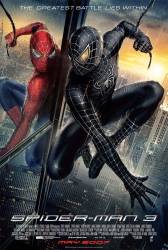
Question: Is there going to be a Spider-Man 4? And if so, who would be the villain?
Answer: At one point in time, Sony was set to make "Spider-Man 4" with director Sam Raimi and stars Tobey MacGuire and Kirsten Dunst. However, Raimi was unable to find a script he was satisfied with after many months of working with different writers, and he was having issues with the studio attempting to force the film into a 2011 release date, which he felt wouldn't give him the time he needed to make a quality film. Thus, he and the actors dropped out and the studio instead opted to go ahead with a reboot, in the form of The Amazing Spider-Man.
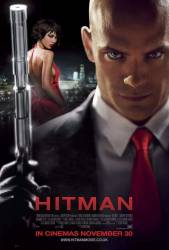
Question: What are the little clear beads that Agent 47 puts down before his hotel room door after he rejects the blonde girl at the bar? They seem to release some kind of gas when the FSB raids his room but I thought they were only put down so he would hear them be crushed when stepped on (which would be impossible to hear if he were doing anything else other than listening for them).
Answer: The reason for the beads being put down was so he could hear if someone stepped on them. Notice how he heard them after Diana said his location was compromised. The beads never released any gas. The smoke filling the room could have either been caused by the explosive device he attached to the door which set most of the room on fire or, they could have been smoke grenades throw into the room by the FSB in an attempt to apprehend 47 although they were unaware he had already escaped.
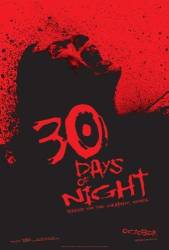
Question: Billy admits that he shot his wife and daughters to save them from a more horrible death at the hands of the vampires. Grieving, he says, "I tried to shoot myself, too, but the fucking gun jammed." But Billy is a deputy sheriff, and any competent law officer can resolve a jammed gun in a matter of seconds. Did Billy actually chicken-out of killing himself after murdering his family?
Answer: Perhaps Billy was not a competent law officer. Or maybe you were right he chickened out. Billy could have killed himself in other ways. Other ways more quiet than gunshot.
Exactly. How could he go on living after killing his whole family? A minor problem such as a gun jam shouldn't have prevented him from committing suicide. In fact, he couldn't become a law enforcement officer without demonstrating a proficiency with firearms, including the ability to field-service his weapon quickly in an emergency. The simple procedure for fixing a jammed firearm is at the top of the list of required skills.
Are we ignoring that he was obviously extremely distraught at this time? My take on this has always been that he pulled the trigger, the gun jammed, and he just gave up on everything. He literally didn't care enough about anything at that point to even bother taking his own life anymore. Let the vampires take him; or not. His family is gone, by his hand no less, nothing at all matters anymore. I didn't see it as an inability to clear the jam, I saw it as a psychological breakdown that resulted in complete and total apathy. The jam was nothing more than the straw that broke the camel's back.
If he gave up on everything, why did he covertly signal Eben with a flashlight? If Billy had truly given up, why not just walk out into the street and be slaughtered by the vampires, rather than continuing to hide?
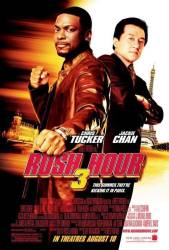
Question: When Jackie Chan and Chris Tucker exited the airport, why were they in pain? Did the French man do something to them?
Chosen answer: He gave them body cavity searches.
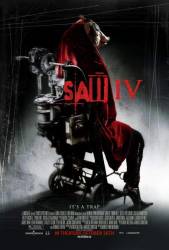
Question: A tape recorded by John directed toward agent Perez states that her partner would soon take the life of an innocent man. How did John know that agent Strahm would kill Jeff? For all he knows, Strahm could have followed Rigg through the factory rather than Jeff. The "if you're good at anticipating the human mind, it leaves nothing to chance" excuse doesn't work here. The only reason Strahm followed Jeff was because he heard Jeff hit a ceiling light with a crowbar.
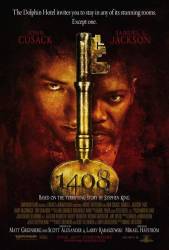
Question: In the office scene where Mike and Olin are speaking of all the deaths that have occurred in room 1408 they say a specific number for each type of death. I added all the numbers up and got 43 but Olin said there had been 56 deaths total. Is my addition wrong or was is it a coincidence that there were 13 deaths they didn't speak of?
Answer: After they recite the types of deaths and the number attributed to each one Mr. Olin also says that there have also been natural causes of death as well which surprises Mike. The natural causes of death add up to the other 13 deaths.
First, I don't have a great memory - I had to re-watch the movie, writing down the numbers: 7 jumpers, 4 overdoses, 5 hangings, 3 mutilations, 2 strangulation's plus 22 natural deaths - I get 43 total, but later we hear of a man that drowned in his chicken soup... which fits none of the categories mentioned including natural. There is also mention of heart attacks, which I don't know if you would categorizes these as natural considering the circumstances. That is to say, they just didn't detail all 56 deaths. The book might, and mind you a book made into a movie is always too fast paced with so much detail crammed into 2 hours... there is really no time to digest all the material. I'm guessing this is a much better read. Also this movie PRE-supposes that a person understands a lot of things... I had to look the stuff up after the first viewing... then came to this site (as a means of looking some stuff up). Here's my low down - after the fast forward second viewing, literally taking notes: 1. The room is not haunted - something in the room is evil; this is stated when the hotel owner has conversations with writer just outside of the office on route to the elevator 2. The writer expresses this is : the seventh circle - the 7th circle is where those that committed the following violations are punished: a. Crimes against neighbours b. crimes against self >suicide c. Crimes against God, Art (grand daughter of God) and nature 3. The writer has pleaded Guilty as charged in the hotel managers office to charges of: believing in nothing (this would be God - and he states so later) and believing in no-one but himself 4. The writer opens the bible - and the page falls to Nathans Parable -2 Samuel 12 ==> had to look this one up - this is about being judged - mostly about a man who kills another and takes his wife - it's about judging yourself and paying for your sins. In this story the wife brings forth a child that god strikes down with sickness and the child dies... among other things. 5. It is generally believed that there are 3 things that allow for better mind control - or mind opening/bending experiences: a. Sugar b. Alcohol c. Drugs ==> he was given a bottle of alcohol which he consumes as well as chocolate squares on the bed - presumably the evil force has provided these to allow better mind control 6. All the pictures show some form of evil: the Schooner lost at sea, should we presume an act of evil in addition to potential future acts of cannibalism? The Hunt: which is where I believe the hotel owner originated from: escaping from a pore in the picture - he was the hunted (no glass covering on the picture) and he provided the alcohol - he also tries to stop the writer from taking the room, saying he doesn't have to do this (punish himself) and/or the manager senses the end of the room and potentially his existence Lastly the old women reading to the three children... I just can't make this one fit...which is actually when I started to review the relevance to evil there. The writer says the children are deranged...? 7. The demons all originate from the pictures - I think; the manager of the hotel, the knife wielding woman (schooner) . I'm unsure about the guy in the vent. That is to say, the pictures have brought the evil to the room; and the room has become a room where those who should be punished in the 7th circle are. 8. To prove the punishment room theory: in the file folder, as the writer approaches the room 408 - the notes indicate a man with the notation that: his brother was eaten by wolves on the Connecticut Turnpike - I'm guessing there was an act of cannibalism there. 9. Further to prove the punishment room theory - acts against art are really usury and charging interest (loan shark style - high rates to those that are desperate) - we see a business man jump - which later appears to be the man from the newspaper article that says: Dec. 06, 1938 Chicago factory owner leaps from bridge - stating Financial issues Ultimately this room is about judging yourself, deciding your own punishment and the evil forces dispensing the punishment. Think about the maid that only blinds herself with scissors, and the writer who has presumably already paid for most of his sins (daughter dies) but is still forced to suffer heat, cold, drowning, mental illness, isolation etc.
Answer: Olin simply did not list all of the causes/cases. He mentions the causes of 21 deaths before Mike cuts him off. He then mentions the 22 natural death cases. By no coincidence, the number of cases mentioned, 43, subtracted from the number of deaths Olin says actually occurred, 56, is 13. Afterwards, he reveals one more cause attributed to the unmentioned 13 deaths: drowning.
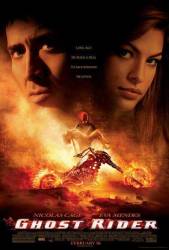
Question: How long does Ghost Rider's penance stare work for?
Answer: The movie doesn't show how long the effects of the Penance Stare last. I have Morbius #1, in which Ghost Rider uses his Penance Stare on Morbius, who recovers from it relatively quickly. I don't know definitively because I haven't read very many Ghost Rider comics, but the duration of the effects could vary depending on how much remorse the person already felt for their past sins, or how much their own super powers allow them to recover from it. From what I understand, the Penance Stare doesn't work on the Punisher, as he feels no remorse for the people he's killed. It also had no effect on Deadpool, as his greatest victim is himself and it actually caused Ghost Rider to revert to his human form when he tried it on Deadpool.
Answer: It depends on the person. The penance stare is used to torture the victim into reliving every bit of mean and sinful behaviour in their life time. So if the victim is older and committed more sinful acts, it will last longer than say a 20 year old who hasn't committed that many acts.
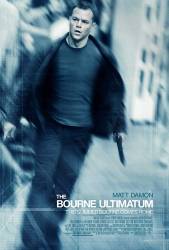
Question: What happened to the previous CIA director in The Bourne Supremacy who was replaced by Erza Kramer in The Bourne Ultimatum?
Chosen answer: The script of The Bourne Supremacy actually calls Martin Marshall the "Deputy Vice-Director" of the CIA, although in the same script and film dialog, Landy refers to him as "Director Marshall". So it appears Kramer is CIA Director in all the Bourne films, but Marshall is either acting Director in Kramer's absence or is just referred to as a Director.
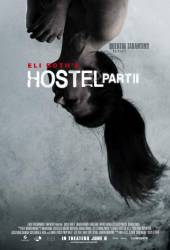
Question: ***Question contains spoiler*** OK, maybe I'm dense, but what was the point of killing the kid? Was it just another scene designed to shock the audience?
Answer: The kids were beating on Beth. If she was beaten and bruised she's worth less money. So Sasha told the "leader" of the gang to choose one to die or he will.
Chosen answer: I think it was meant to show that there is a line that the kids can't cross - if they do, then one of them will get sacrificed...hence why the adult doesn't show any mercy in doing it, and the kids know that something nasty is about to happen.
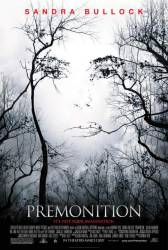
Question: If Sandra is at the scene of the accident, what is the purpose of the police officer showing up at the door to tell her Jim is dead?
Answer: It's fairly obvious that this film's theme is that knowing the future changes it. I.e. knowing there would be an accident, she travelled there and caused an accident.
Answer: Possibly she left the scene before the police arrived, so they did not know she had been there.
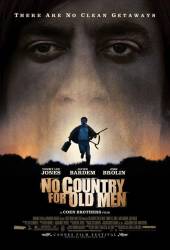
Question: How did Chigurh get his gun back? After the shootout in the hotel, when Moss is first hit, occupies the car and then shoots Chigurh, Chigurh disappears and Moss takes his gun. Moss then drives to the border with the car, and presumably dumps them somewhere or leaves them in the car. Well, when Chigurh later kills Carson Welles, he has his gun back. How did he get it back? Did he find the car, if it was in there? Did he buy a new one?
Answer: It was a different gun. He kills Carson with a shotgun, while the gun Moss picks up is a silenced SMG by the looks of it.
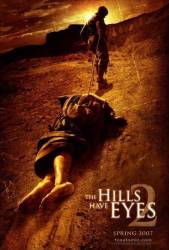
Question: At the very beginning, it says that a family got stranded in a desert. Is it referring to the Carter family from the first film?
Answer: Yes it is.
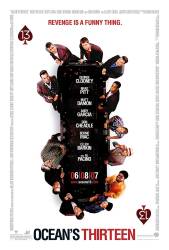
Question: Can anyone give some insight as to what was used to contaminate the hotel reviewer's room?
Answer: I don't think there's any way of providing an exact answer to this question, but I think it's safe to say that whatever materials they used were highly bacterial but not lethal (otherwise the 5 Diamond Award critic would be dead or in serious condition).
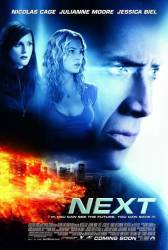
Question: I don't get the joke Chris told Liz in the cabin motel about the Zen master that ordered a hotdog with everything. What was funny?
Chosen answer: The Zen master tells the hotdog vendor to "Make me one with everything," a pun, of sorts, on the Zen philosophy of becoming one with the universe.
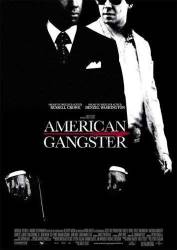
Question: What was the whole thing of not wanting to turn in the $987,000 they found in the car because it would make them appear untrustworthy? Why would all cops distrust them for handing it in? I get that dirty cops would be annoyed but when they were counting it in the precinct, every cop was drawing them daggers.
Answer: The idea is if cops wouldn't take a million dollars for themselves, free and clear without risk, they are impeccably honest. Therefore, they wouldn't accept bribes and probably not hold still for shakedowns or payoffs. They wouldn't cover up drug or weapon planting and would testify against crooked cops.
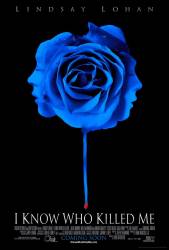
Question: What's the symbolism behind all the blue in the movie?
Answer: Blue's the color for Aubrey's character, and the red one's for Dakota. If you watch the movie carefully you can notice that Aubrey wears blue clothes the most of the time while Dakota wears red ones. So it's just to represent the diferent characters and make the movie obvious.
Chosen answer: In 2005, Hurricane Katrina ravaged the city of New Orleans, with many of the residents temporarily housed in the Superdome. FEMA (Federal Emergency Management Agency) was highly criticized for their response (or lack of), including how long it took to supply the Superdome with adequate water and food. Matt's pointing out to John how the government isn't nearly as capable of responding to disaster as people think.
OneHappyHusky